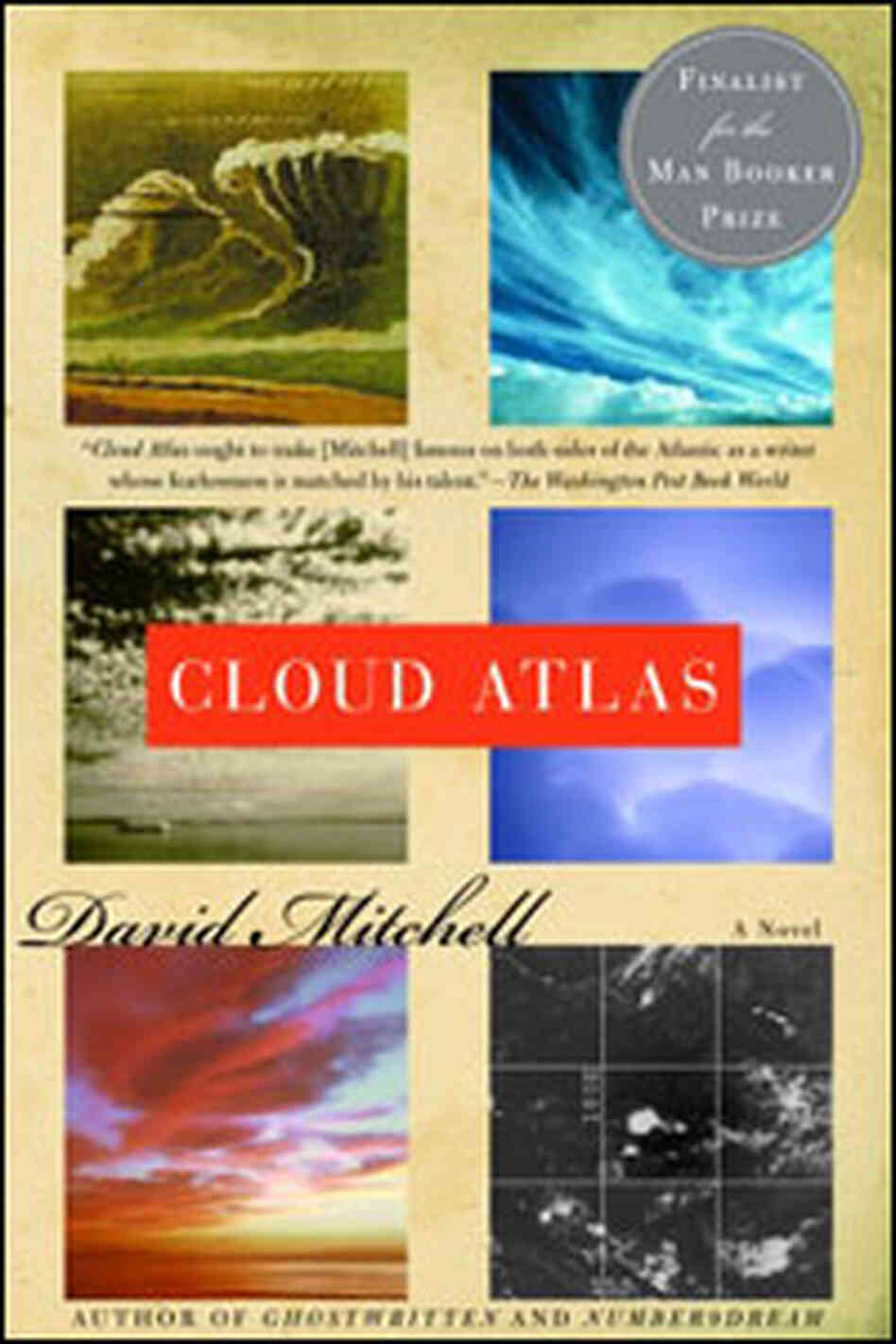 Cloud Atlas (2004) by David Mitchell
Cloud Atlas (2004) by David MitchellWell, ten years after Cloud Atlas was published, I have finally read this magical matryoshka-doll masterpiece and BOY am I glad I did (I have my Book Riot colleagues to thank for finally nudging me toward Mitchell!).
For those of you who still haven't read it, I urge you to rectify that situation, like, now. Because what other novel out there is structured like a mirror, with each narrative/chapter connected to the one before through a mixture of coincidence and fate (reincarnation)? (Yes, I know that sounds paradoxical but...you know...).
I've always been drawn to the idea of reincarnation because it offers a tantalizing explanation for that feeling you get when you meet someone for the first time and feel like you've known them for years, or when you love a particular culture to which you have no connection (I, for one, have always been drawn to late-19th-century France, even though I have no ancestral connections to it that I know of. So yeah).
Mitchell, though, doesn't knock us over the head with this philosophy but uses connections across time and space (and a certain little comet-shaped birthmark) to knit the characters together in a complex web. One character's journal is found by another character decades later; in turn, that character's letters are read by yet another character decades after that, and so on. The novel's movement around the world and through the centuries, and even into a post-apocalyptic period where "civilization" has imploded, gives the story an epic feel, even though the stories are not about great leaders or geniuses. And yet, each character, from Robert Frobisher to Sonmi-451, has a particular strength and tenacity, which enables them to move, however briefly, beyond their ordinary lives to achieve something great.
Reading the five narratives whose halves flank the central post-apocalyptic story is an experience in itself, since you are given the opportunity to read the stories as if they are both new and old. You've read their first halves, but now you have to remember (or not remember) what happened and try to pick up the thread. This physical dislocation seems to evoke the spacial-temporal dislocation that separates each character. And yet, a common "soul" or mentality unites them.
All this is to say: LOVED IT. **runs off to find more David Mitchell novels**
I read this for the first time last year and adored it, too. The structure and subtle connections were all just so well done, I feel like it's a novel that will be appreciated for a long, long time. Do you plan on seeing the movie? I'm always curious what people think of it because I'm so torn.
ReplyDeleteI recommend The Thousand Autumns of Jacob de Zoet next. For some reason I started David Mitchell with Black Swan Green, which just has a completely different feel to it. I did watch the Cloud Atlas movie and thought it was very well done. A rare instance where the movie is just as good as the book it was based on, in my opinion.
ReplyDelete